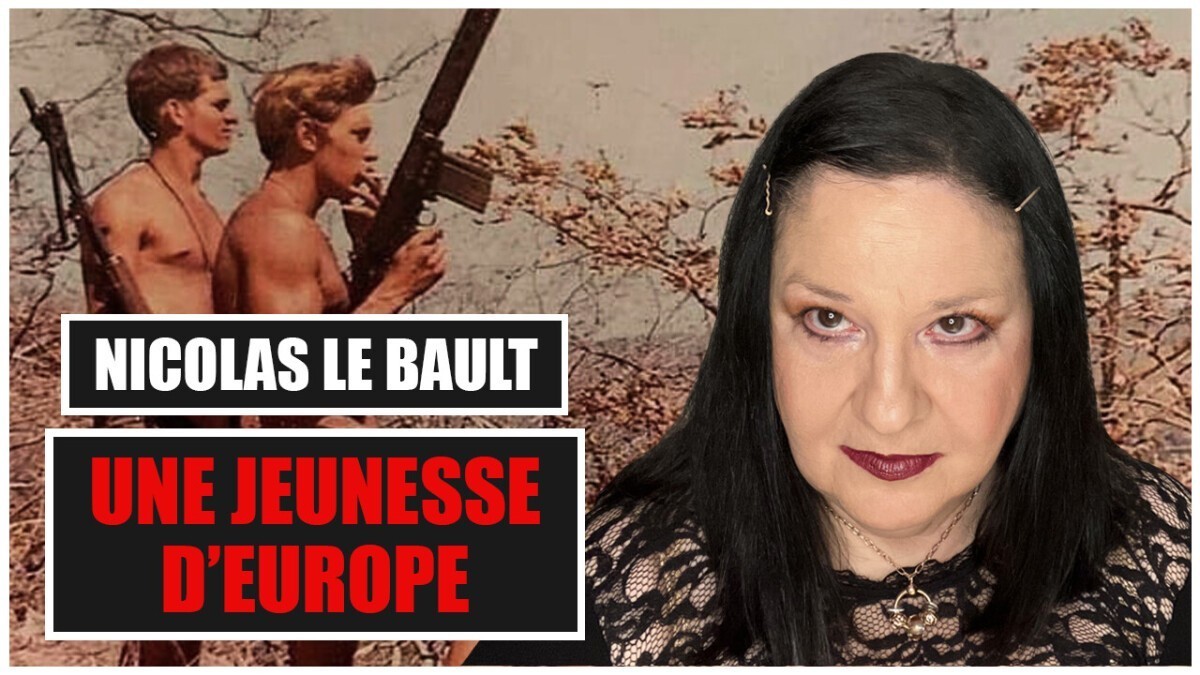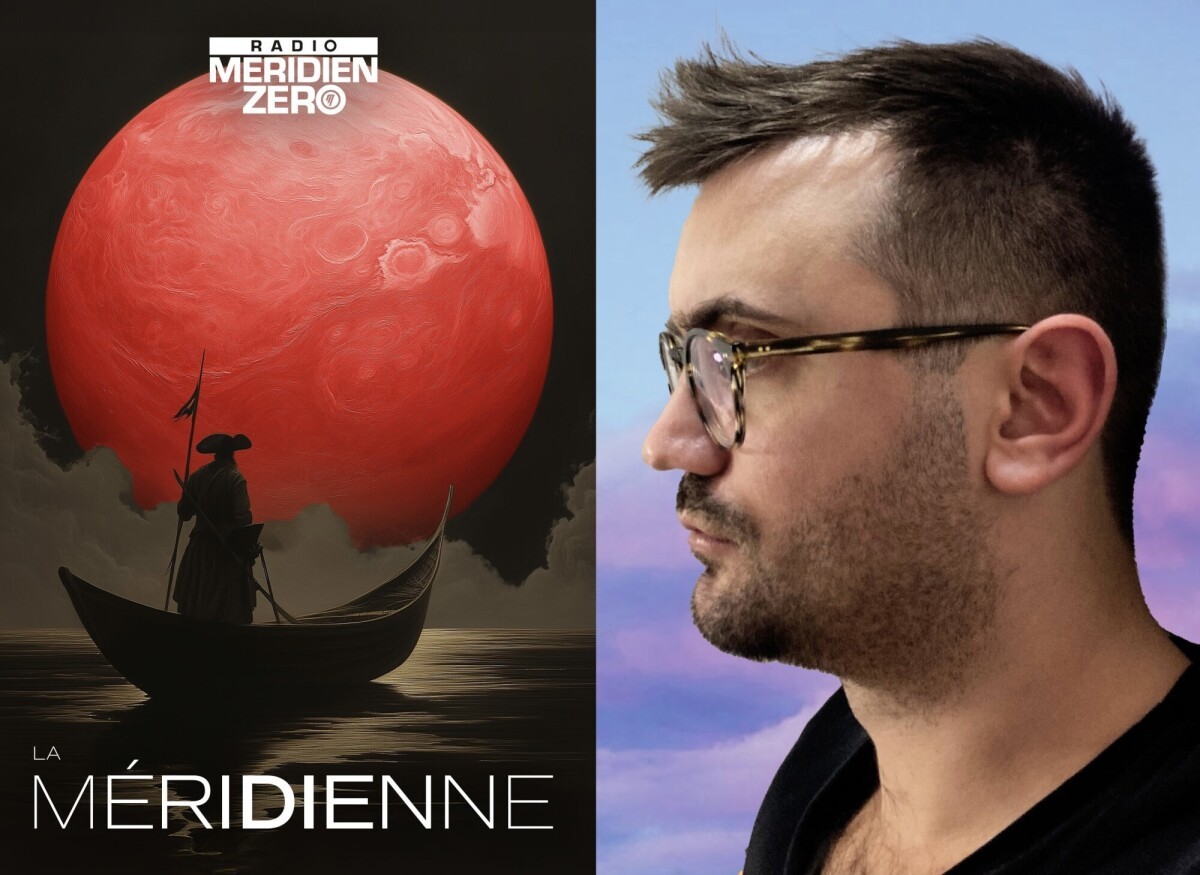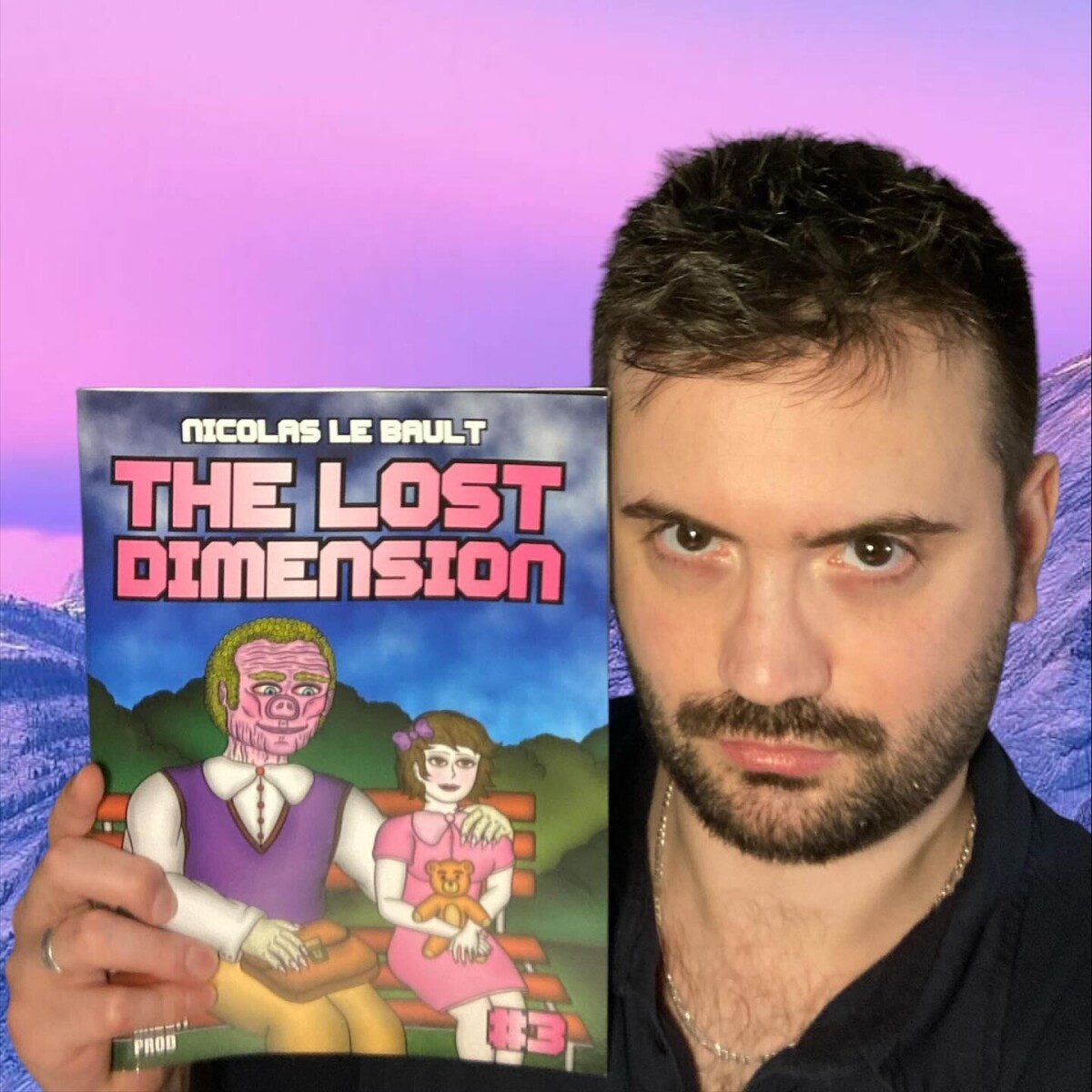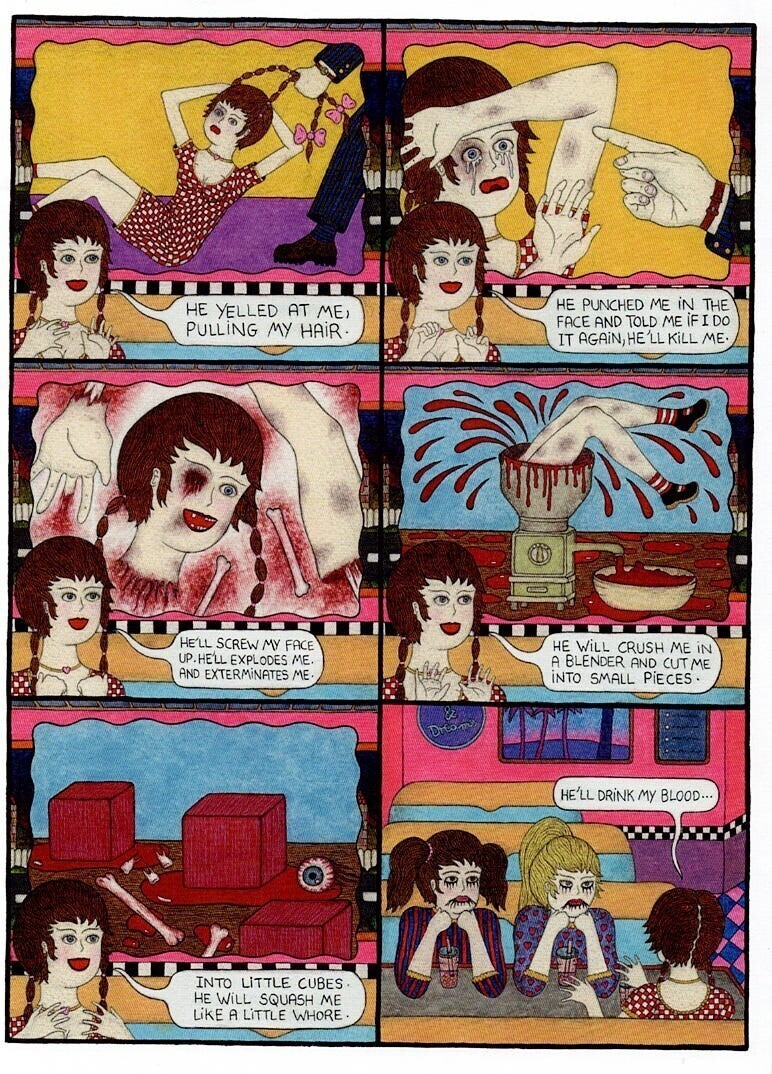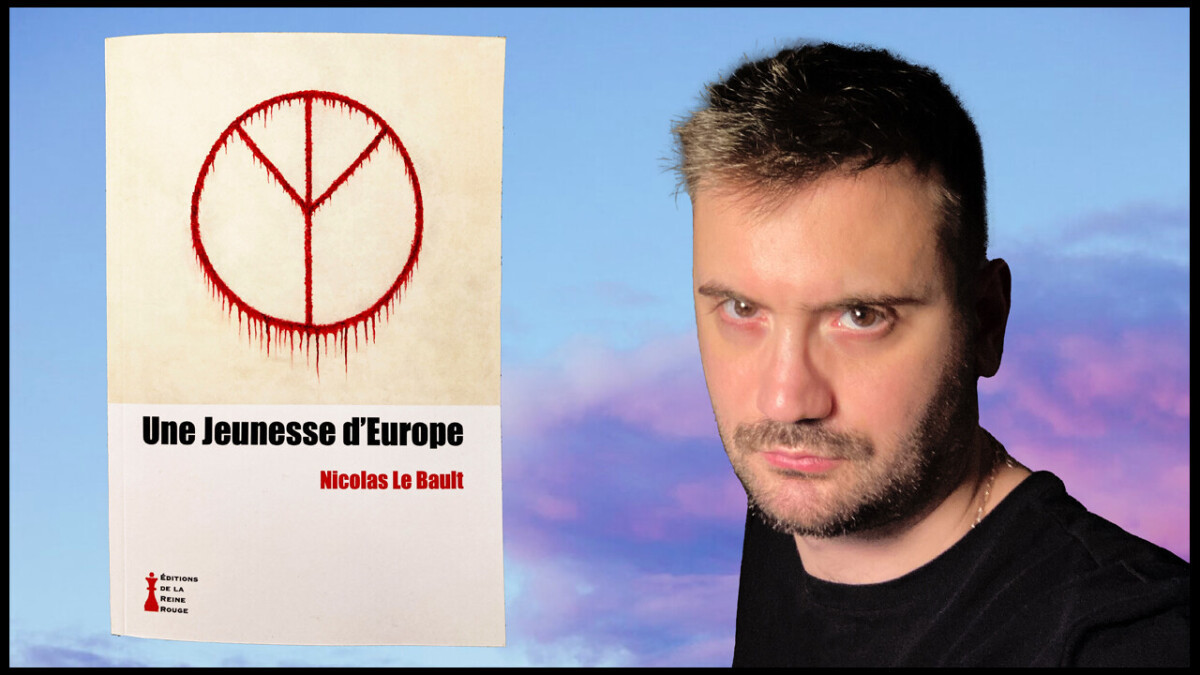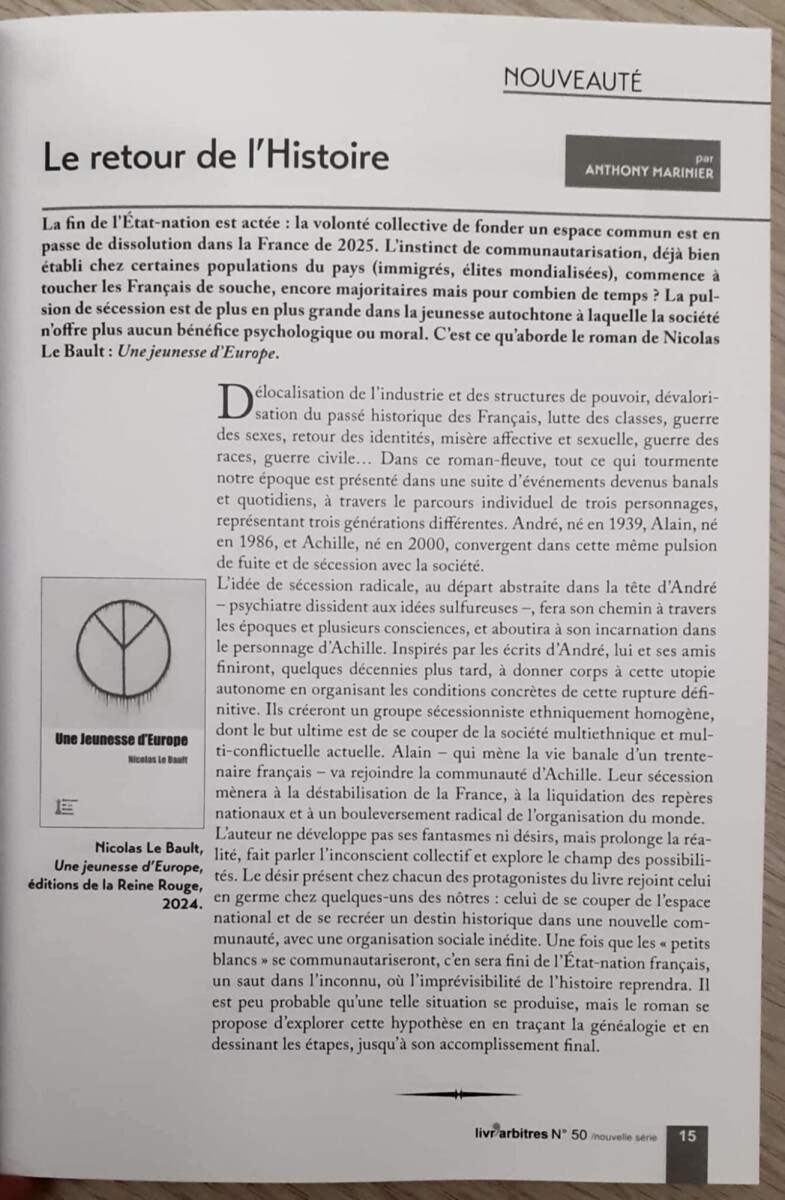
Article by Anthony Marinier on A Youth of Europe in Livr'arbitres No. 50, 2025
The End of the Nation-State Has Been Sealed: the collective will to establish a shared space is on the verge of dissolution in France, circa 2025. The instinct toward communitarianism—already deeply rooted among certain segments of the population (immigrants, globalized elites)—is now beginning to affect native French people, still a majority... but for how much longer? The drive for secession is growing rapidly within the indigenous youth, a generation to whom society no longer offers any psychological or moral benefit. This is the central concern of A Youth of Europe, the new novel by Nicolas Le Bault.
Offshoring of industry and power structures, discrediting of France’s historical legacy, class struggle, gender war, the return of identities, emotional and sexual misery, racial conflict, civil war… This sweeping novel weaves together everything that torments our time, in a succession of mundane and everyday events, as seen through the lives of three characters representing three different generations. André, born in 1939; Alain, born in 1986; and Achille, born in 2000—all converge toward the same impulse of retreat and secession from society.
The idea of radical secession, initially abstract in the mind of André—a dissident psychiatrist with provocative ideas—will evolve across eras and through various consciousnesses, ultimately incarnating in the character of Achille. Inspired by André’s writings, Achille and his friends will, a few decades later, give concrete form to this autonomous utopia by organizing the practical conditions for a definitive break. They create an ethnically homogeneous secessionist group, whose ultimate goal is to cut ties with the current multiethnic and conflict-ridden society. Alain—a typical thirty-something Frenchman—joins Achille’s community. Their act of secession destabilizes France, leads to the collapse of national reference points, and triggers a radical upheaval in the global order.
The author does not indulge personal fantasies or desires. Instead, he extends reality, gives voice to the collective unconscious, and explores the field of possibility. The desire expressed by each of the book’s protagonists echoes one that is beginning to take root in parts of our own society: the desire to sever ties with the national space and forge a new historical destiny within a newly formed community and a novel form of social organization. Once the “petits Blancs” (the rural and working-class whites) begin to form their own communities, the French nation-state will cease to exist—a leap into the unknown, where history’s unpredictability will resume its course. Such a scenario is unlikely, but the novel dares to explore this hypothesis, tracing its genealogy and mapping its path to full realization."
Offshoring of industry and power structures, discrediting of France’s historical legacy, class struggle, gender war, the return of identities, emotional and sexual misery, racial conflict, civil war… This sweeping novel weaves together everything that torments our time, in a succession of mundane and everyday events, as seen through the lives of three characters representing three different generations. André, born in 1939; Alain, born in 1986; and Achille, born in 2000—all converge toward the same impulse of retreat and secession from society.
The idea of radical secession, initially abstract in the mind of André—a dissident psychiatrist with provocative ideas—will evolve across eras and through various consciousnesses, ultimately incarnating in the character of Achille. Inspired by André’s writings, Achille and his friends will, a few decades later, give concrete form to this autonomous utopia by organizing the practical conditions for a definitive break. They create an ethnically homogeneous secessionist group, whose ultimate goal is to cut ties with the current multiethnic and conflict-ridden society. Alain—a typical thirty-something Frenchman—joins Achille’s community. Their act of secession destabilizes France, leads to the collapse of national reference points, and triggers a radical upheaval in the global order.
The author does not indulge personal fantasies or desires. Instead, he extends reality, gives voice to the collective unconscious, and explores the field of possibility. The desire expressed by each of the book’s protagonists echoes one that is beginning to take root in parts of our own society: the desire to sever ties with the national space and forge a new historical destiny within a newly formed community and a novel form of social organization. Once the “petits Blancs” (the rural and working-class whites) begin to form their own communities, the French nation-state will cease to exist—a leap into the unknown, where history’s unpredictability will resume its course. Such a scenario is unlikely, but the novel dares to explore this hypothesis, tracing its genealogy and mapping its path to full realization."

